SUMMARY
This is AI generated summarization, which may have errors. For context, always refer to the full article.
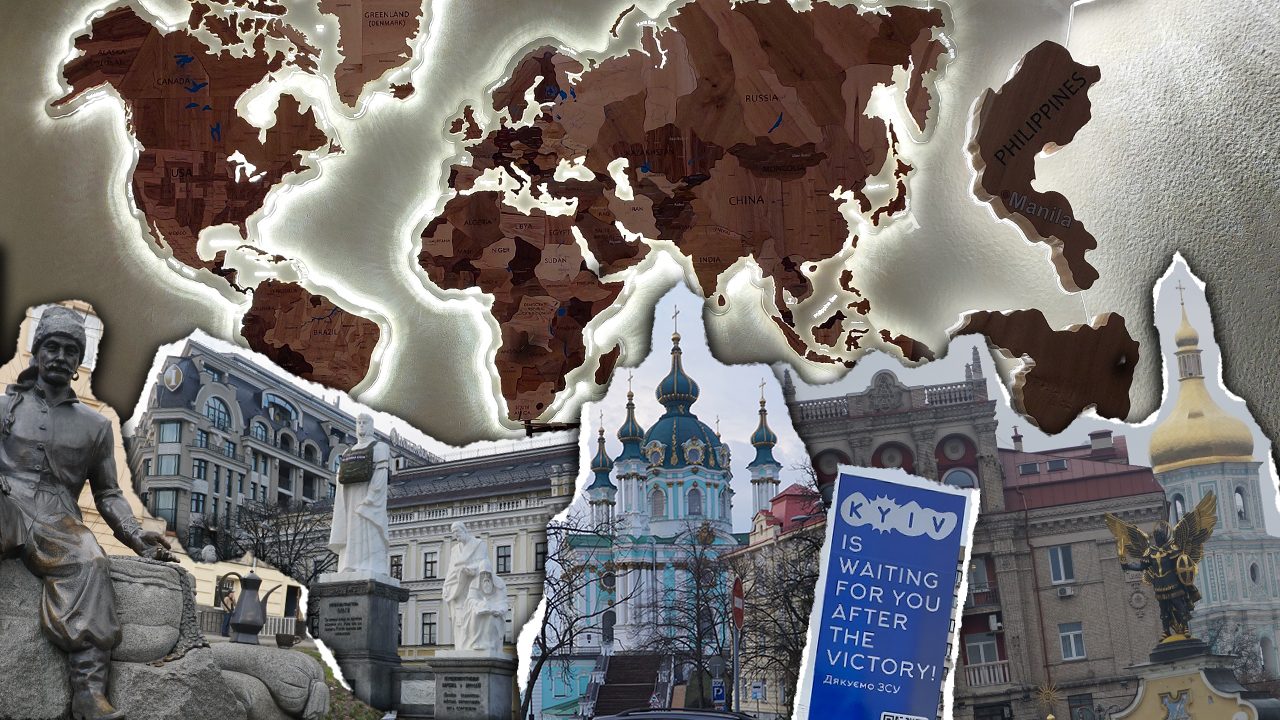
This reporting tour of Ukraine was conducted upon the invitation and with the support of the Ukraine Crisis Media Center, a non-government organization based in Kyiv, with assistance from the Indonesian Association for Media Development, an NGO based in Jakarta.
Last of 2 parts
Part 1 | The brutality of Ukraine’s fight for existence: ‘This is war. Let the baby die.’
I was taking photos of a monument to the 17th century coffee connoisseur Yurii-Frants Kulchytskyi at a park in Lviv when I first heard an air raid siren.
It was my first morning in Ukraine. It wasn’t even 10 minutes since I left the hotel. I was relearning how to operate a DSLR camera, having used only phone cameras for years. I was practicing on the statue because I was shy to photograph people.
I noticed Ukraine has many beautiful monuments of their historical figures, and this one is fascinating: besides being one of the earliest purveyors of coffee in this part of Europe, Yurii-Frants Kulchytskyi was also a war spy.

The air raid alert app notification went off first (the first thing you do upon entering Ukraine is download one). My phone suddenly produced this ugly, disconcerting sound, and I nearly dropped it. The next second, the city’s loudspeakers started blaring the siren. It was distressing.
My first thought was that I had to document what was going on. It’s what I came to do. I turned my phone camera on myself even as I tried to figure out what to do next: Will a bomb actually fall? If so, how soon? Do I really have 10 minutes before it possibly hits, as our hosts told us? I needed to get to a shelter. The nearest one I knew of was the hotel’s. Should I run? No one else around was running.
I told myself to calm down and just walk – calmly but briskly – back to the hotel. I spoke my half-formed thoughts into my phone. How a person reacts to his or her first air raid alert can add insight to the coverage of war, I thought. Just that in this case, the person I was using as a subject was also me.
I found the receptionist and her assistant at the front desk, as though everything was normal. Wait. This is normal to them, I thought. I asked where the bomb shelter was and whether we should go to it. The receptionist glanced at me, smiled, and then rolled her eyes.
“We should go to the bomb shelter,” she said, staying put. It was the correct answer to my question but not necessarily what she intended to do. “It’s up to you.”

Days later, all seven of us journalists and our host and chaperone Yulia Volfovska were in the middle of a kebab dinner in Kyiv when our phones went off with the alert, almost in unison. Our initial reaction was nervous laughter.
You don’t want to take it seriously. It was only my second time being interrupted by an air attack notification and, already, I wanted to ignore it and finish my meal, because nothing bad happened to me the last time. The notification said the alert covered all of Kyiv. It’s a large city. What were the odds the missile was headed precisely to this kebab restaurant?
But what if it was?
Two years of living under continual aerial assault, with their phones and sirens warning of oncoming Russian projectiles nearly every day – people in Ukraine are fed up. Myra Iaremkiv – our host and chaperone for most of this reporting tour – admitted complacency, as do many Ukrainians, but she refused to be dictated upon by sirens.
“I am living by myself. I have no kids. And I take full responsibility for myself. So I often choose not to go to the shelter. Am I desensitized? Yes. Am I numb to this? Probably, yes. Have I kind of accepted my fate that I can die any minute? Probably, also yes.”
War fatigue makes you forget that when no explosion follows a siren, it doesn’t mean there wasn’t a real attack. It may sound quiet on the ground, but the action happens way overhead. It means Ukraine’s Patriot anti-missile system successfully detected and intercepted the missile or drone or whatever weapon it was that Russia fired.
And then, sometimes, a missile does hit. The Patriot system isn’t infallible – roughly a third of Russian missiles get past it.
The Russians are also learning to dupe the system by sending decoys ahead of actual attacks. They’ve been hitting targets in Ukraine more and more frequently in recent weeks.

And now, Ukraine’s arsenal of Patriot missiles is dwindling, and its allies, particularly the United States, have yet to come through with fresh deliveries. House Republicans in the US have for months been blocking a bill that would provide Ukraine $60 billion in aid.
“It is hard to imagine how Ukraine will be able to maintain the extremely hard-fought advances it has made against the Russians, especially given the sustained surge in Russian ammunition production and purchases from North Korea and Iran,” US national intelligence director Avril D. Haines told a US Senate panel on March 11, a warning against abandoning Ukraine.
“If Congress does not help Ukraine, Ukraine will lose the war,” Ukrainian President Volodymyr Zelenskiy said on April 7, appealing to US lawmakers.
The night an air raid alert interrupted our dinner was February 23, the eve of the second anniversary of Russia’s full-scale invasion. Rumors were that Putin could be planning an especially massive attack. Yulia didn’t leave anything to chance. She led us to the most accessible bomb shelter in Kyiv: the subway, called the “Metro.”
When the threat took long to lift – you wait for the app to give the all-clear – she put us on the train to the Dnipro Hotel, which had a proper bomb shelter in the basement. We went in and waited. The threat lasted two hours. Kyiv was spared that night.
This, by the way, was the reason we entered and exited Ukraine via the Polish border. Ukraine’s airspace is closed because of the regular aerial bombardment from Russia.

Not a ‘conflict’
Ukrainians don’t call their situation with Russia a “conflict,” because “conflict” implies active, opposing interests, a disagreement between parties on equal footing.
“For us, it’s not a conflict,” Liubov Nepop, political director of Ukraine’s Ministry of Foreign Affairs, told our group. We were inside the ministry’s headquarters facing St. Michael’s Square. Sandbags covered the ground floor windows. We were closely screened and inspected upon entry.
“We don’t have any disagreement with Russia. We just would like to stick to our internationally recognized borders. Russia attacked Ukraine. Russia invaded Ukraine. So we don’t have equal sides. We have an aggressor, Russia, and a victim, Ukraine.”
It is an “unprovoked war,” said Nepop, and the rest of the world cannot afford to stay on the fence because Russia benefits from the vacuum in the international community’s response to its blatant atrocities. If Putin goes unpunished, then there goes the international rules-based order.
“If Russia is allowed to neglect the rules-based order, and if the international society accepts it, then it means it is also allowed for other countries, players, everybody,” Nepop said. “So in principle, we will be in a situation where the architecture of international order, international security, which is based on rules, now depends on the outcome of Russia’s war of aggression against Ukraine.”

Beyond principle, she warned that the current situation may devolve into a global catastrophe.
“What would it mean if Ukraine stopped resisting? It will mean that tomorrow, Russian troops will be on our western border, the border with NATO. What would it mean if Russia invaded any of our western neighbors? NATO will already be involved in this conflict. What would it mean if NATO is involved? It will be a real, full-scale Third World War.”
Then why not negotiate? Isn’t there a non-violent way of ending the war?
“Russia is not willing to end the war,” Nepop said. “Russia is not seeking compromises. They openly say that they want to control all of Ukraine.”
It shouldn’t be hard for Filipinos to comprehend the pitch. China also claims historic rights over the West Philippine Sea, as spurious as Russia’s claims over Ukraine. China’s warships are criss-crossing Philippine waters and harassing Philippine vessels. Experts believe Beijing is posturing to take Taiwan. Chinese jets have been flying over the self-governed island, violating its airspace.
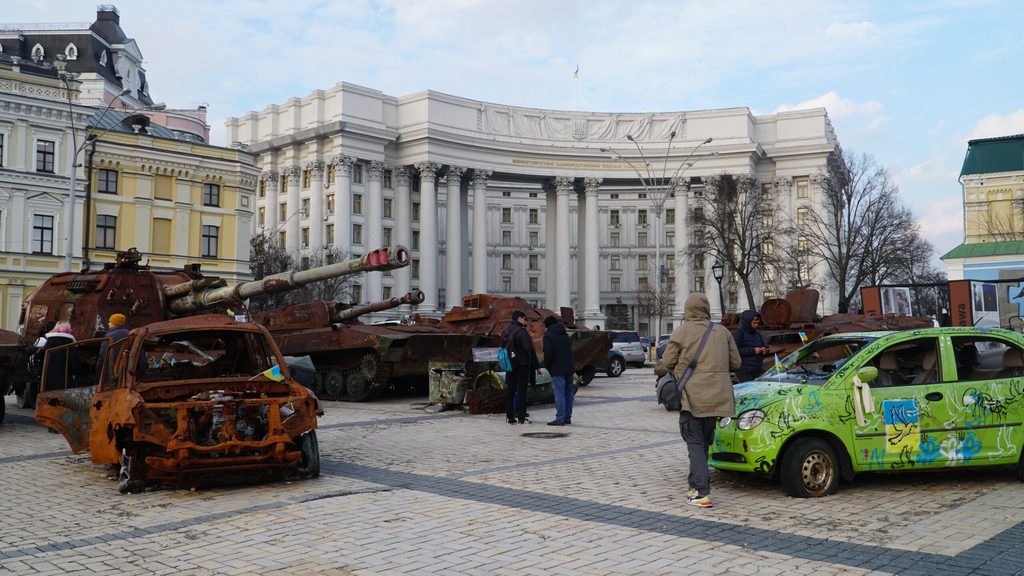
“If Russia wins, it will not be just a regional crisis. It will have global repercussions,” said Dmytro Bryzhinsky, head of the Chernihiv City Military Administration. He led the city’s successful resistance to the invasion in 2022.
“That will encourage China, North Korea to act accordingly.”
“If Putin wins, none of the borders around the world is secure,” said Inna Sovsun, a Member of Parliament. Her partner is fighting on the frontline. She calls him every day to check if he is alive.
How Ukraine’s Western allies deal – or don’t deal – with this phase of the war will have implications for countries with similar dependencies such as the Philippines, a US treaty ally.
“If we’re seen to be walking away from support for Ukraine, not only is that going to feed doubts amongst our allies and partners in the Indo-Pacific; it’s going to stoke the ambitions of the Chinese leadership in contingencies ranging from Taiwan to the South China Sea,” CIA director William J. Burns told the US Congress in March.
Two years. Many wars in the world’s history took longer to resolve. If that’s how soon an ally’s commitment wears out, then countries with expansionist designs need only to finance a war for two years, and then they get what they want.

Decade of war
Serhii Uzlov is a middle-aged man with kind eyes. He approached our group at St. Michael’s Square. He had noticed us taking photos of the captured Russian tanks on display near monuments to Princess Olha, St. Andrew, and Sts. Cyril and Methodius. Princess Olha’s statue has been fitted with a flak jacket to symbolize the ongoing war.
Serhii introduced himself: He is a tour guide, formerly of Chernobyl but that has been closed, so now he offers tours of Kyiv, but there are hardly any tourists. Would we like a tour of Old Kyiv?
But our hosts from UCMC had already booked a tour of the Old City for us, and I regreted having to decline Serhii’s offer.
Physical evidence of Ukraine’s history are all over its cities and towns, and locals often book walking tours for visitors as a welcome gift. Ukrainians treat their historical mementoes and monuments with reverence, even love. During the attack on Borodyanka, Russian forces defaced a monument of the poet Taras Schevchenko, revered as “the father of Ukraine.” They knew the affront would cut straight to Ukrainian’s hearts. It did, judging by the way Natalia Buzovetska told us the story.
Serhii agreed to be interviewed instead. In fact he was eager to be interviewed.

“I’ve been living in this war for 10 years,” he said. He reckoned the war from February 2014, when Russia annexed Crimea. That’s why Ukrainians call the action that began in February 2022 the “full-scale invasion” – they realize it is an escalation of an aggression that was already underway.
“I’ve grown accustomed to all these attacks,” he went on, referring to the air raids. “Unfortunately for me, this war is part of my life. It is not a good feeling but I’m not afraid.”
All Ukrainian men of fighting age are banned from leaving the country. Anyone of them aged 27 to 60 may be ordered to join the war any time. A letter from the Ministry of Defense could come any day, conscribing them to military service.
Not everyone is happy about this, of course, and many prospective conscripts avail of legitimate excuses to avoid the draft. But I sensed no kicking-and-screaming among any of the Ukrainian people we met on this tour. The rage they feel over Russia’s disrespect of their identity and humanity balances out any fear they might have of getting killed on the frontline.
“We have no other choice. We have to win,” Serhii said. “Because in any other case, he will just kill us. Putin will never stop until we stop him.”

Golden hour
The perverse logic behind Putin’s campaign must’ve been to break the Ukrainians’ spirit to seize their country. He must’ve known Ukraine could put up a fight. Russia’s intelligence and counterintelligence are the stuff of legend. He must’ve expected formidable pushback. But he also must’ve assumed that a display of absolute willingness and ability to kill and injure en masse would scare Ukrainians out of their wits and force their government to capitulate.
But reconnaissance can only size up armies and arsenals, not a nation’s spirit. Courage and heart cannot be quantified like munitions. Ukraine’s zeal is proving to be far less exhaustible than rocket fuel.
Just months into the war, the Ukrainian army liberated occupied towns including Moshchun, Borodyanka, and Yahidne, and forced the Russians to retreat eastward. The frontline in the country’s eastern flank has hardly moved in over a year. At the moment, Russia occupies roughly a fifth of Ukraine’s territory, although things can escalate in a flash.
Through all this, Ukrainians have learned to bottle up their grief.
Iryna Simonova came to Chernihiv’s ruined cinema to tell us the story of its shelling. It had been the city’s youth center. She looked very hip and sophisticated in jeans, a black puffer jacket, and aviator sunglasses. It was clear she had told this story many times. Her tone was matter-of-fact, even detached.
That is, until something triggered the memory of her son, who was killed on the frontline not even a year ago. Then her voice broke. She apologized for it. She stepped back from our circle and turned away so we don’t see her crying, as though her grief were inappropriate. Our efforts at kind words seemed feeble in the face of raw sorrow. Iryna took a few moments, composed herself, and then picked up the story where she left off.
This is Ukraine. No one will fault Ukrainians if they put their suffering front-and-center, but they treat that as secondary. The main thing for them is the justice of their cause. They chin up. They flash a collective middle finger at the enemy.
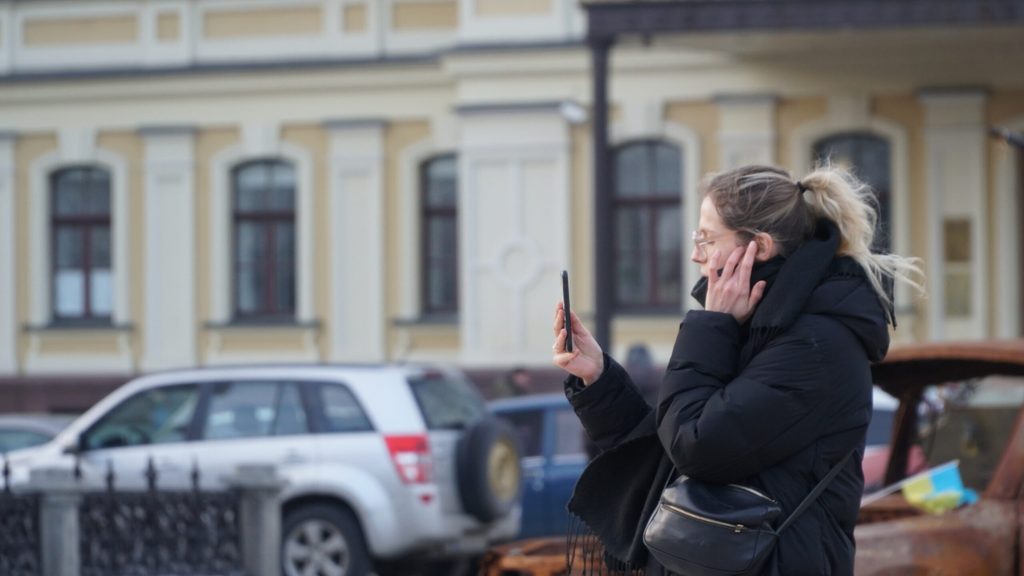
Myra was living in Canada when the full-scale invasion began. She came home right away and decided she would stay in Ukraine until “the victory.” Ukrainians refer to what would be the war’s end as “the victory” because they refuse to imagine any other outcome.
“It motivates me that I’m in Ukraine, that my Ukraine stands, that I’m able to live in the city where I was born and that I love very much. I am able to speak Ukrainian here. I’m able to read Ukrainian books. I can walk freely. I can see my friends and family,” she told us.
Myra is in her early thirties. One of her male friends was conscripted in March. She thinks the draft is unfair – women should be conscripted, too.
“I was even saying to my male friends that if they were all going to get conscripted, I would go, too. Because at least we would be somewhere together, help Ukraine together and work together, instead of me just staying in Kyiv and worrying about them constantly.”
At the end of our reporting tour on February 27, we said goodbye to Myra at the parking lot of the train station in Lviv. She was taking the 4pm back to Kyiv. We were to board a van to Poland.
She thanked us for visiting Ukraine and asked if she could give each of us a hug.
Of course, we said.
It was the golden hour. The domes, steeples, and cupolas of Lviv’s skyline gleamed in the warm afternoon light. The weather had changed since we arrived a week before. No longer as cold. No longer gray. Winter was giving way to spring.
“See you again here after the victory,” Myra told us.
A brief silence. Bittersweet smiles.
“Of course,” we said.
Then she walked back to the train station. We got in the van. It turned and exited the lot. We headed for the border.
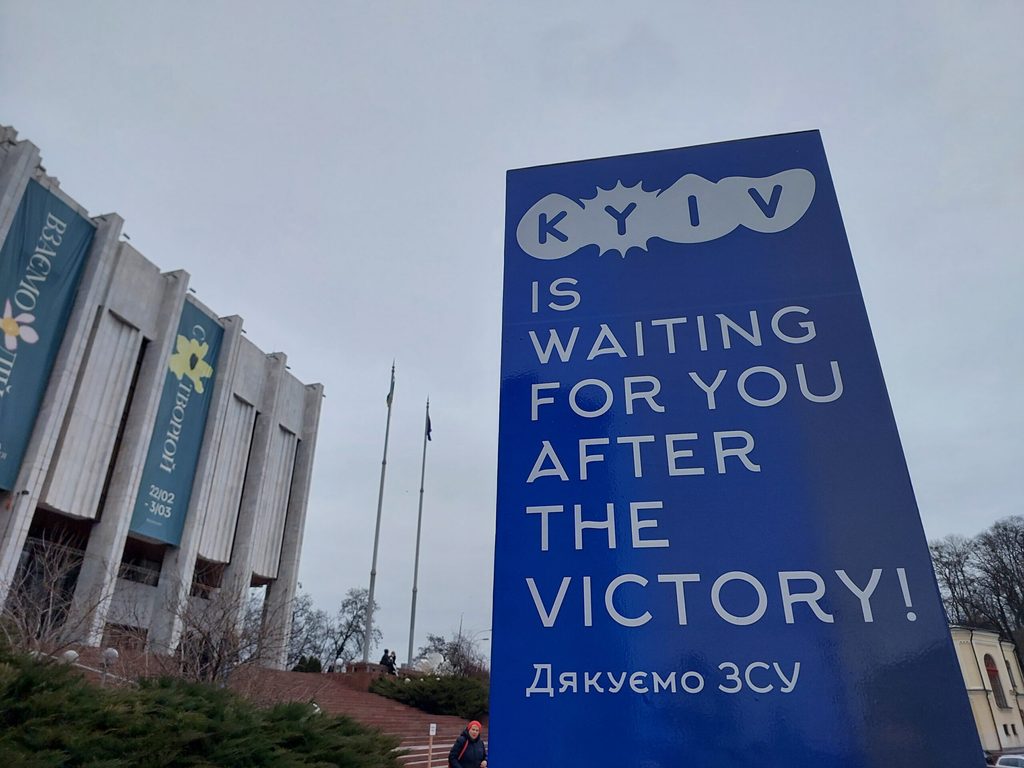
Coolest country on Earth
On March 21, a Russian missile hit Nahirna Street in Kyiv. A dermatology clinic was destroyed. Myra sometimes walks this street coming home from work. It is 1.5 kilometers from her house.
Then, at 10:30 am on April 8, two hypersonic missiles hit downtown Kyiv. The impact came 10 seconds after the alert. Myra was working from home. The only shelter available to her was the bathroom.
“I took my laptop and went to the bathroom to work, just like that. Took a couple of breathing cycles, messaged my friends and family to see if they were okay, checked the news to see where the missiles hit, and just went back into the work day – Zoom calls, reports, emails, just your usual work day.”
At first she was amazed at herself for carrying on like everything was normal. But the next day, hearing news of a stranger’s death triggered a sudden physiological response in her, and the recent events sank in, all at once.
“I couldn’t stop crying, like bawling, for an hour. My hands were shaking. I was in shambles, like my body finally processed all the stress – three missile attacks on Kyiv in a week – and I just couldn’t focus on anything, cried uncontrollably, couldn’t work, everything made me irritated or angry. It was really a difficult state to be in,” she told me in a message.
She is beginning to bounce back, she said. I asked her to please take care and from now on go to a shelter every time there’s an alert. She said she would.
“I really hope to live to the time when there will be no air raid alarms, explosions, people dying on the frontlines. Not complaining though. I have accepted our Ukrainian fate, wouldn’t wish to live anywhere else. I’m living in the best, bravest, coolest country on Earth. It just saddens me that we can’t live a normal life in our best years, but that’s the reality.” – Rappler.com

Add a comment
How does this make you feel?



















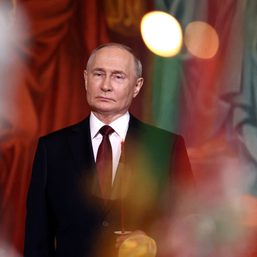

![[Rappler’s Best] Of wars and presidents](https://www.rappler.com/tachyon/2024/06/volodymyr-zelenskyy-ukraine-president-marcos-bilateral-meeting-reuters-june-3-2024-004-scaled.jpg?resize=257%2C257&crop=445px%2C0px%2C1703px%2C1703px)
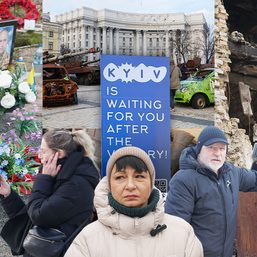
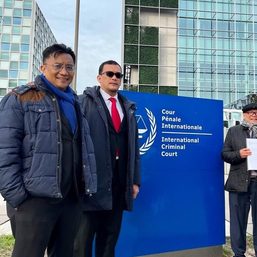
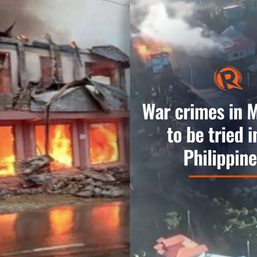
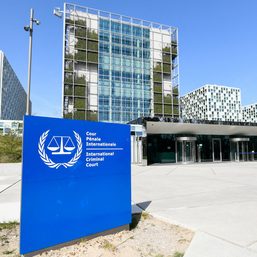
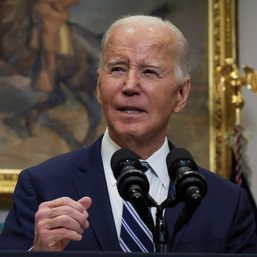
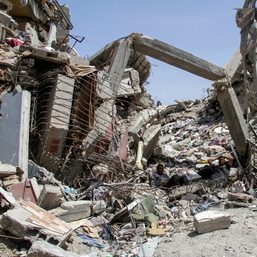
![[OPINION] Unjust wars and a just peace](https://www.rappler.com/tachyon/2024/03/tl-unjust-war-just-peace03262024.jpg?resize=257%2C257&crop_strategy=attention)

![[Just Saying] SONA 2024: Some disturbing points](https://www.rappler.com/tachyon/2024/07/TL-marcos-sona-points-july-23-2024.jpg?resize=257%2C257&crop=335px%2C0px%2C720px%2C720px)



There are no comments yet. Add your comment to start the conversation.